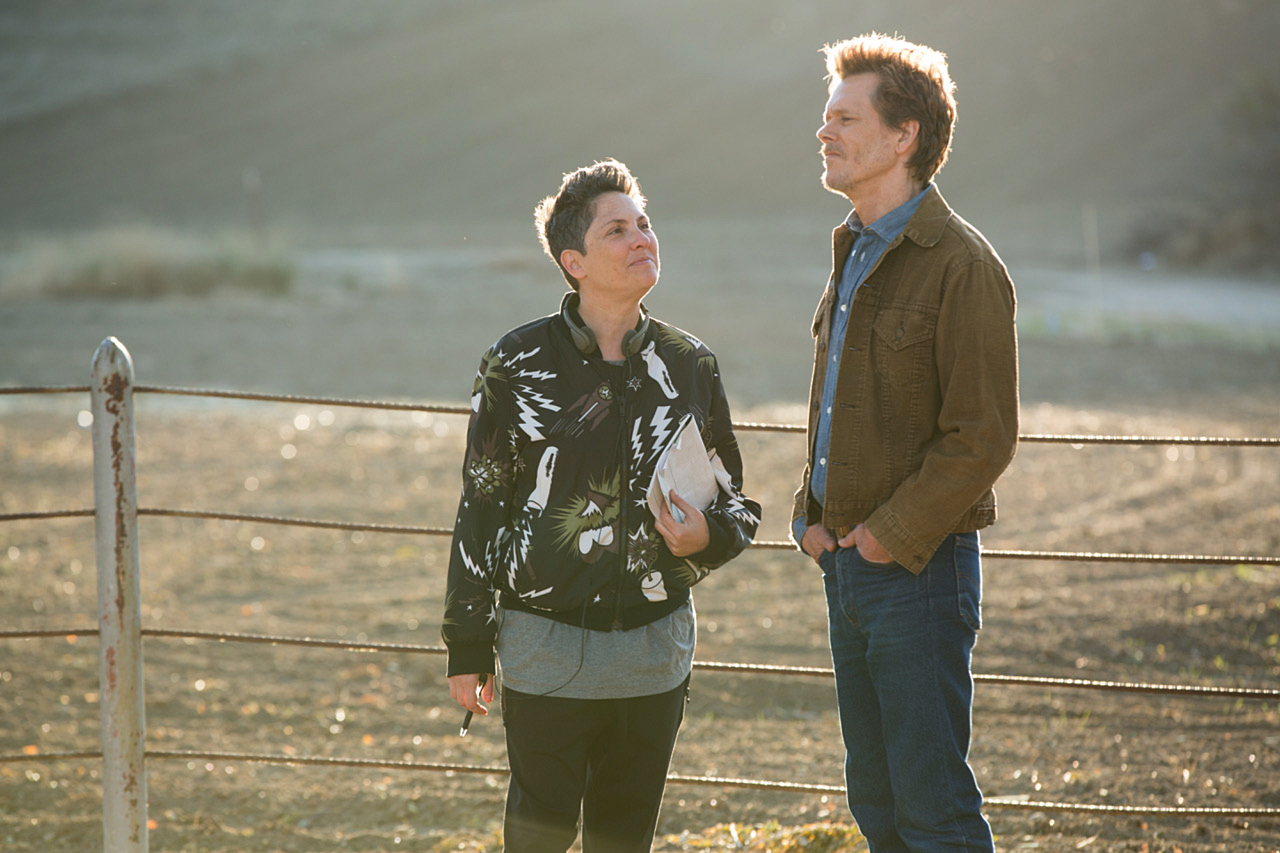
- Industry
Jill Soloway Titillates, Subverts with I Love Dick
I Love Dick. The very title titillates. It’s a concept nice girls would never admit to, and uses vocabulary good girls never utter. But the show isn’t about girls. It’s about women. Based on a book of the same title by author Chris Kraus, the comedy comes to Amazon through Golden Globe winner Jill Soloway, creator of Transparent, and stars Katherine Hahn, Kevin Bacon, and Griffin Dunne. Its a comedy that some might say is about a love triangle – a couple in love with the same man – but it’s about many other things: life, inequity, sexual drives. It is bold, brassy and in your face. It makes you think and feel and laugh out loud. The author describes it as “a feminist, matriarchal, revolution-inspiring comedy about love and sex.”
If you don’t like to see naked breasts up close, jiggling around as a woman hilariously works off her sexual drive aroused by someone else, or Kevin Bacon’s naked ass, this show is not for you. That being said, it has quiet moments and casual sly ones that upend the way you think about things you normally don’t question. Women will recognize in I Love Dick, parts of themselves and their worlds that are generally lacking on the big and little screens. You may not align with all aspects of the story, but secret hidden parts will spring to attention at some of the colors.
Jill Soloway identifies as non-binary and likes to be addressed using the gender-neutral pronoun ‘they’. Demanding gender neutrality is a political statement. Given the world of patriarchy that gives one gender and race privilege, people are using pronouns to obliterate easy categorization, and thus the implied association of worth and ability – or lack thereof.
In a world where white men are the preferred choice because they make the decisions, promote the images that are familiar to them, and reap the rewards, the stories that get told reflect the decision makers’ world.
Soloway speaks of her time as a showrunner on The United States of Tara and Six Feet Under. She says she asked for the opportunity to direct many times but never was given the chance. It’s a story many female directors mention when trying to cross over, and is relevant when you consider how many men with very thin resumes are given a chance at those opportunities. For I Love Dick Soloway and co-producer Sarah Gubbins assembled an all-female writers’ room.
Soloway talks about the burdens that fall on women, people of color and queer people – in particular – the ‘emotional resources’ required for just making it through life. “For example, while men often have the assumed desire and opportunities to explore their ambition, it is somehow the default position that the emotional needs of the family are the woman’s responsibility. In addition, women deal with having been told their whole lives that the way they look is more important than what she says or does or thinks.”
“These are the same reasons there may not be as many women in political office,” Soloway points out. In their opinion, “people of color, women, queer folk, trans folk may be so spent from fighting the consequences of patriarchy that they don’t have the bandwidth to take on some of the tasks that many men are raised to master.”
“Becoming a director involves the same kind of sports team leadership of a coach or a politician,” Soloway says, adding: “The privilege that many white men feel from living as the main character in patriarchy encourages them to lead more easily. They are able to harness the luxury of excess time and energy.”
To further the analogy, Soloway notes that, “Golf is representative of the ultimate luxury. It’s men, walking slowly, all day, relaxing and making business decisions together. It’s so odd, and it’s unbelievable.” It also explains why that sport is sometimes referred to as the acronym for Gentlemen Only Ladies Forbidden.
If these themes prompt a reaction, know that they are only the patina and not the core of I Love Dick. You’ll be laughing out loud and then find yourself thinking a politicized thought later. It’s provocation by art. Of course these themes may not resonate with the mainly male entertainment reviewers. Women critics are having a visceral reaction to the show, while some male critics express more measured reactions.
“It’s unfortunate that so many women’s first works end up meeting the minds of so many male critics,” Soloway observes. “When I made the film, Afternoon Delight, there was a male reviewer for Variety who hated the film, and the movie never got a great release because the first voice that came out was a man going, ‘meh.’” Soloway suggests that editors of magazines that would affect a movie’s financial profile have a moral imperative to ensure their staff look more like the public – including men, women, people of color, queer people. This is true for any industry.
So what’s Jill Soloway’s advice for women who would follow her blazing trail? “Align yourself with other female artists. Create the universe to live in where you are the subject not the object, and keep working.” They add this joke: “And hey, if you are a filmmaker and you are not able to get the child care, make a movie and cast your family!”